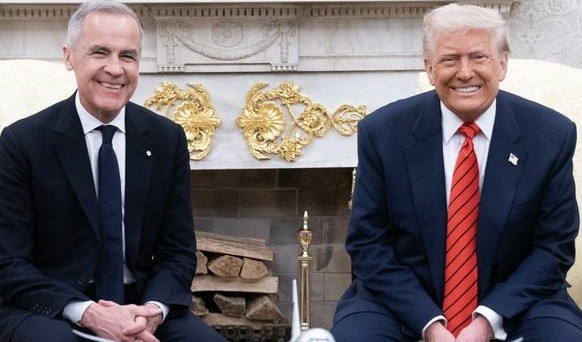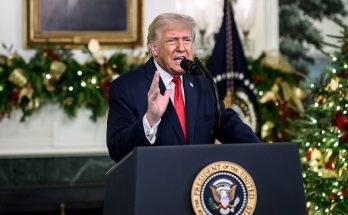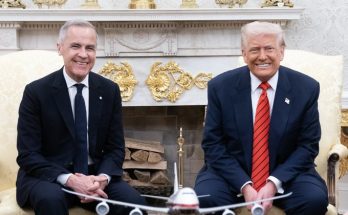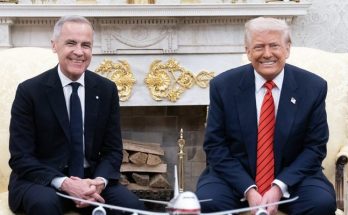Toronto/IBNS-CMEDIA: Amid the ongoing trade war with the United States, Canada is dropping its counter tariffs on the American goods that are covered by the free-trade agreement between the two countries, Canada’s Prime Minister Mark Carney said Friday.
Carney made the announcement during a news conference Friday, following a virtual meeting of his cabinet, and the day after a discussion with U.S. President Donald Trump.
With the government of Canada’s “focus squarely on these strategic sectors” going forward, Canada’s counter tariffs on U.S. steel, aluminum, and autos are not changing, Carney said.
Welcoming the move as long overdue, a White House official said that they “look forward to continuing discussions with Canada on trade and national security concerns.”
“We want to be very good to Canada. I like Carney a lot. I think he’s a good person and we had a very good talk yesterday,” U.S. President Donald Trump said in the Oval Office Friday.
After being assured by Trump that scrapping some countermeasures would kick start negotiations on a new trade and security deal, Carney said Canada and the U.S. agreed to “intensify” discussions to address trade challenges and “to seize major immediate opportunities, both in trade, investment and security.”
Speaking to reporters in the Oval Office Friday, Trump appreciated that Canada was dropping its counterlevies.
“I like him a lot,” Trump said in reference to Carney, adding he thinks he’s “a good person,…It’s basically all coming back into the United States now,” …because of tariffs and incentives we give.”
Trump signed an executive order on July 31, raising tariffs on some Canadian goods to 35 per cent effective the next day. Canada’s failure to strike a new trade deal with the U.S. by the Aug. 1 deadline led it to avoid the hike.
Also read: Carney and Trump speak for the first time since blowing past trade deal deadline
Canada’s rate hike in Trump’s response to fentanyl trafficking had led Canada to hit back the US with counter-tariffs.
Also read: Carney hints at dropping some U.S. tariffs if it will help Canadian industries hit by trade war
The 35 per cent tariff rate only applies to goods not covered by CUSMA.
First ‘nation-building project’ to be announced soon
Carney said his government will focus on strengthening the Canadian economy by expanding trade with other countries, doubling the pace of home-building and making investments in national defence.
Earlier this year, legislation had given streamline approvals, said Carney for nation-building projects such as highways, railways, ports, airports, pipelines, critical minerals, mines, nuclear facilities and electrical transmission projects.
“The Canadian government will soon select the first in a series of new nation-building projects that will connect and transform our economy,” he said on Friday.
Canada needs an agreement with the U.S. that provides relief to the steel, auto, forestry and copper industries, said Ontario Premier Doug Ford to Carney after the announcement on Friday.
“If the federal government can’t achieve that, they need to hit back hard against U.S. tariffs and provide additional supports for the workers and businesses in these sectors,” Ford said in a statement.
Welcoming Carney’s announcement in a statement by the Canadian Federation of Independent Business calling it a “step in the right direction” that will “take the pressure off Canadian small businesses.”
Carney won’t rule out future increases to steel and aluminum tariffs
When asked whether Canada will increase its tariffs on steel and aluminum to match those of the U.S., Carney said: “we’ll look at everything.”
“We look at our industry both in terms of how we support their retooling, their investment in the industries…we’re engaged in discussions with the United States about exactly those sectors, said Carney
CUSMA is up for review next year. Carney said and added the federal government is beginning preparations for a renegotiation of that deal.
Measures to support the industries most affected by the trade dispute have also been implemented by the government to help insulate the Canadian economy from an over-reliance on the United States.
Several provinces, meanwhile, have removed U.S. alcohol from liquor store shelves, and Canadians en masse have reduced travel south of the border.





